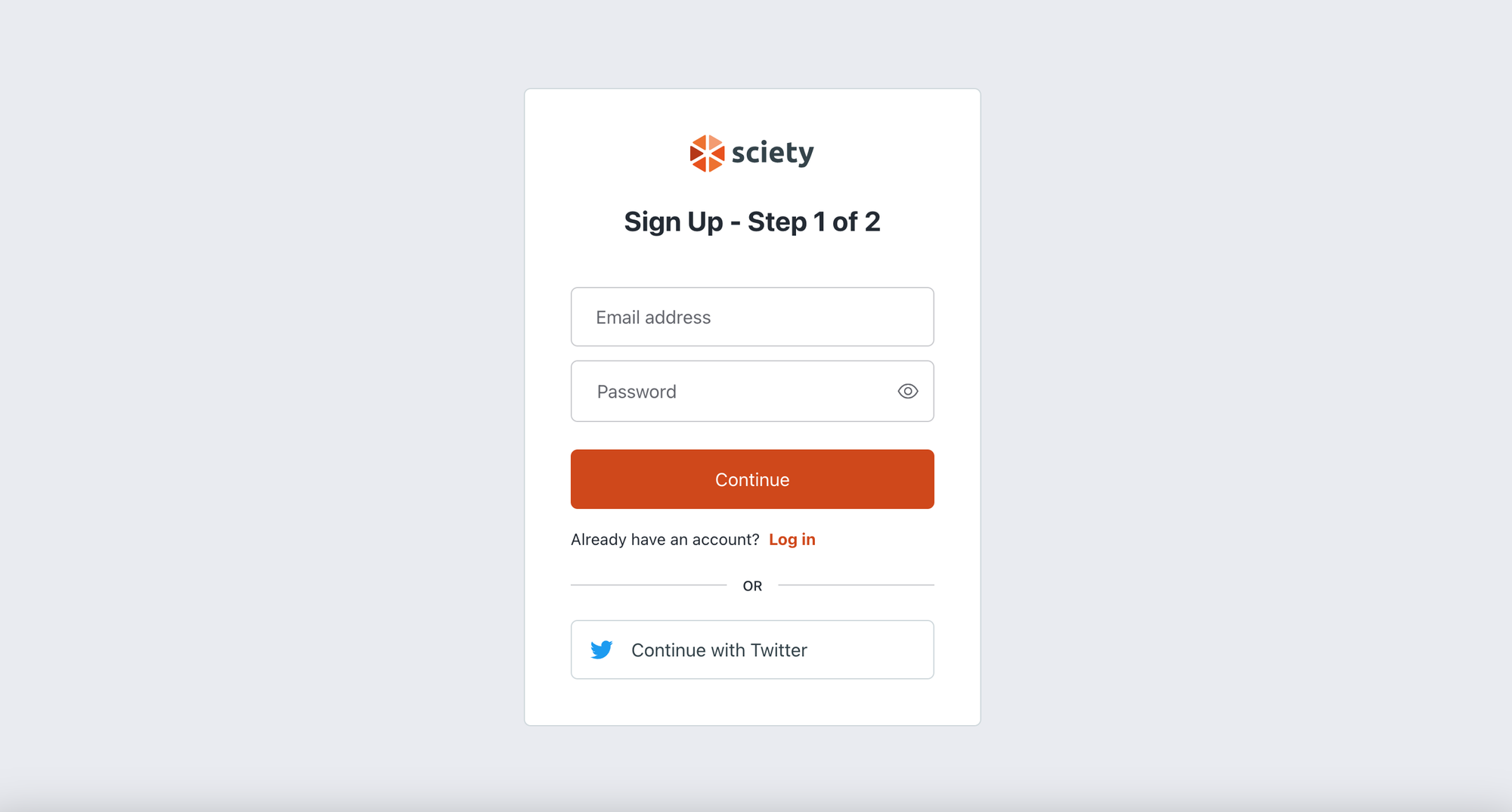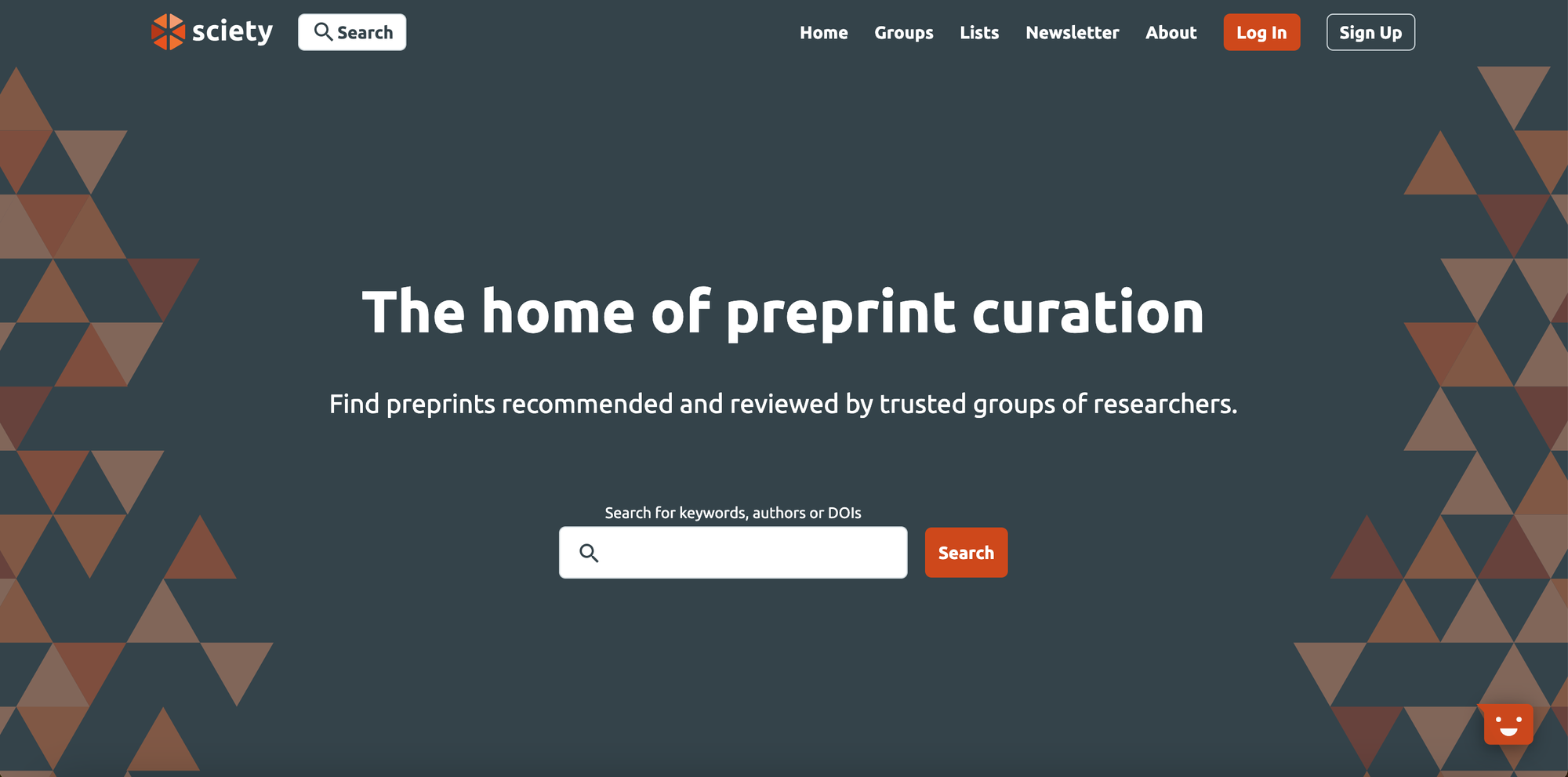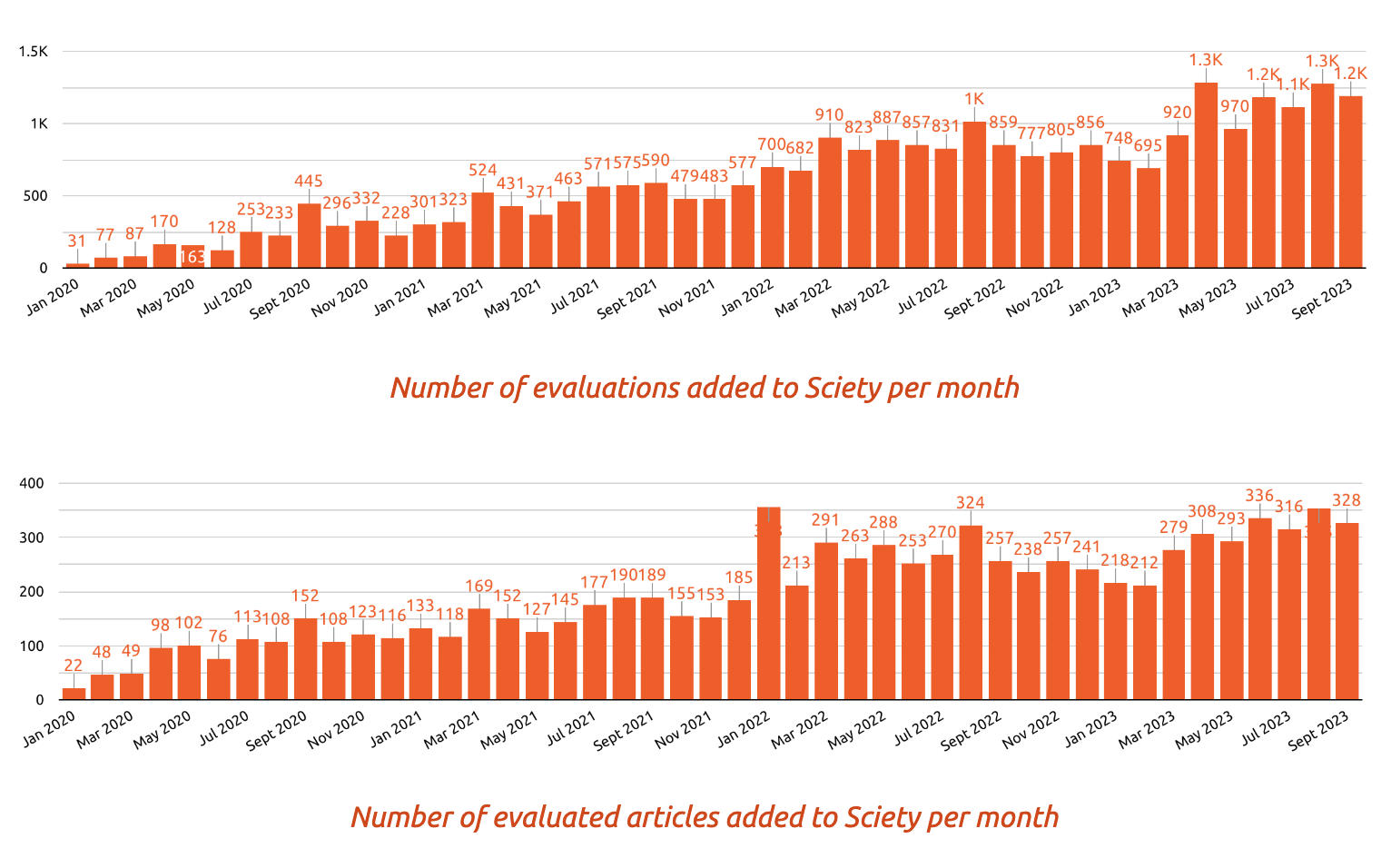This past year has seen many transformative changes for Sciety, all with the aim of enhancing the experience for users, fostering a more collaborative environment, and welcoming more groups to our growing community. From adding more options for creating an account to revamping the homepage and making several updates to how lists can be used, let’s delve into the changes that have shaped Sciety this year.
Providing more options with email login
Sciety has prioritised accessibility by introducing a new and seamless email login feature. Whereas previously you could only login to Sciety using an X (formerly Twitter) account, this enhancement simplifies the onboarding process, allowing researchers to quickly and securely access the platform with their email credentials. This has allowed Sciety to become more accessible to those who don’t have, don’t want, or can’t access an X account.

Transforming the homepage
The Sciety homepage has undergone a complete redesign in 2023. All of this has been undertaken with the aim of improving the experience for those using it and to highlight the various features, groups and preprints available. The new homepage was designed to ensure that visitors can quickly discover the latest research, discussions and evaluations within their areas of interest. It serves as a gateway to the extensive vault of preprints and evaluations available for you to read for free on Sciety.

Improving personalisation of lists
We recognise the importance to researchers of organising and customising lists of preprints, so this year we made a few enhancements to list functionality. You now have the ability to create multiple lists and edit their titles. Whether you are collating reading lists for yourself or collecting preprints to share with others, this improved functionality enables you to tailor your experience to suit your individual needs and align your saved content with your research interests.
Undertaking experimentation with Sciety Labs
An exciting addition this year has been the introduction of Sciety Labs – an innovative space designed to experiment with new functionality by incorporating data points and external APIs. A few things we’ve done this year include: using the Semantic Scholar API to provide up-to-the-minute AI recommendations of related articles; incorporating RSS feeds; and using unique images for articles and lists. Sciety Labs lets us run risky feasibility experiments with small audiences to build confidence in new features before we put them into place on Sciety. For example, following positive feedback from researchers we spoke to, the Related Articles AI engine graduated from our Labs site to become a fully fledged feature, now incorporated into the Sciety platform this year. We expect some other experiments will follow this process.
Open data on preprint evaluations
This year the team published a live report of preprint evaluation activity. It is an important part of Sciety’s mission to contribute to a culture of open peer review of preprints and we do this by open-sourcing our software and data for others to reuse.

This data has already found its way into publication, appearing in Advancing the culture of peer review with preprints, an output from the ‘Recognizing Preprint Peer Review’ workshop that took place in December 2022.
As Sciety evolves to meet the changing needs of the scientific community, we hope the work we’ve achieved this year marks a stride towards creating a more collaborative, accessible and useful place for researchers to discover and organise preprints. We will carry on this work in 2024 with the aim of making Sciety an integral part of every researcher's toolkit.


